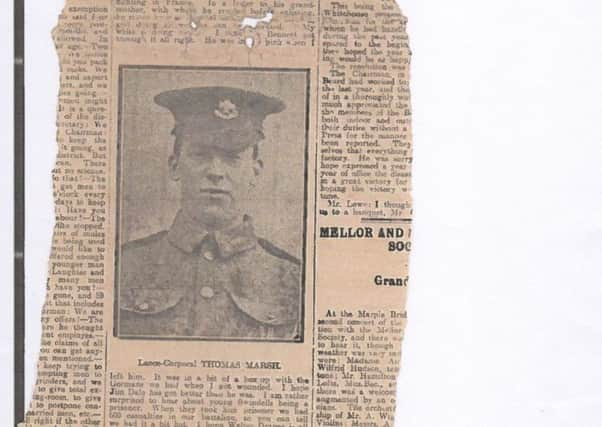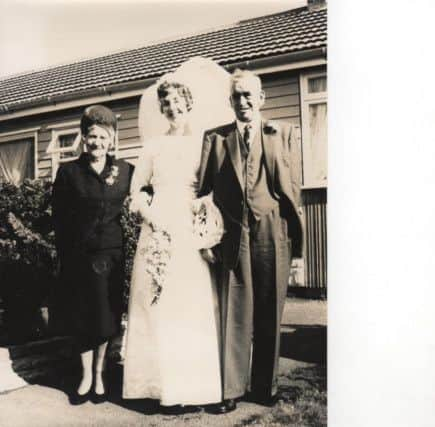Wire cutters saved New Mills soldier’s life


Born 1895, Lance Corporal Thomas Marsh enlisted with 10th Sherwood Forresters, a Nottinghamshire and Derbyshire regiment, in early September 1914, aged 18.
A typical Tommy, he joined the front line after landing in Boulogne in July 1915, enduring the mud, rats and lice associated with trench warfare.
Advertisement
Hide AdAdvertisement
Hide AdAs part of the Derby battalion, he survived several major encounters alongside his brother Edward Marsh, including the Battle of Loos, the largest British offensive on the Western Front.


But in 1916, in an incredible twist of fate, a bullet heading straight for his chest was deflected by the tool in his breast pocket.
After being returned to hospital in England with an unrelated injury, Thomas wrote to his grandmother, with whom he resided on High Street before the war, explaining what had happened.
He wrote: “You want to know if my wound is serious. It is not. I am rather lucky in getting to England with it. It is getting better. A piece of shell grazed the back of my wrist. I was lucky it did not catch my hand fairly or my hand would have been missing.
Advertisement
Hide Ad“Before I got this wound, I had a pair of wire cutters in my equipment. The top part was lying against my left breast and a bullet came and hit the wire cutter plump against my heart.
Advertisement
Hide Ad“It turned the bullet but it took every bit of the wood off one of the handles and never did me a bit of harm. This was just before the charge. The captain said I was the luckiest man living. I think that was luck, don’t you?”
After the war Thomas returned to New Mills, working at Calico Printers and later the paper mill in Hague Bar.
He married Emily “May” Scott at New Mills Parish Church in 1921, and lived at Hague Fold Cottage before moving to New Street, where they lived until he died aged 74, in 1970.
Advertisement
Hide AdGranddaughter Diana Darlington, formerly of New Mills, learnt of the near miss after finding a newspaper clipping, believed to be from the High Peak Reporter.
She said: “He worked hard all his life, and was well liked and respected by everyone who knew him. He would go out of his way to help anyone, everyone around knew Tommy Marsh.
Advertisement
Hide Ad“I was the eldest grandchild and their only grandaughter. Grandad used to call me ‘his little pal’ a reference I believe to the term they used in the regiment, a regiment of pals who signed up together.”
The 70-year-old grandmother-of-four said added: “He never really mentioned the war. Like a lot of people, he blocked it out of mind. I was 26 when he died, and I wished I’d asked him more about it. If it wasn’t for his wire cutters, we all wouldn’t be here.”